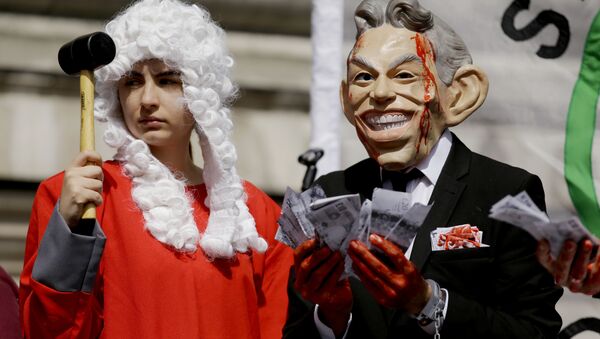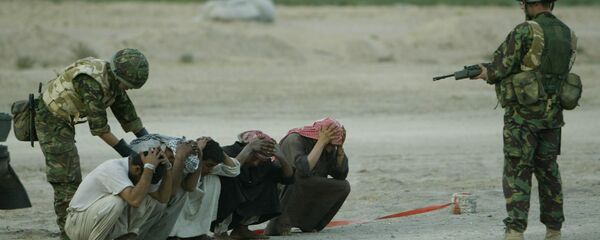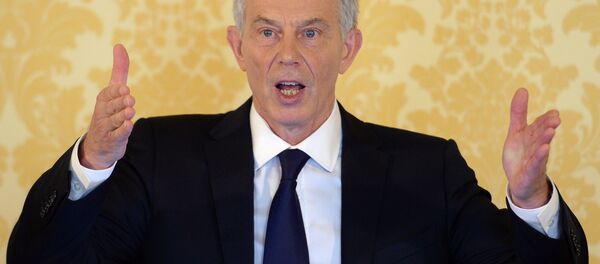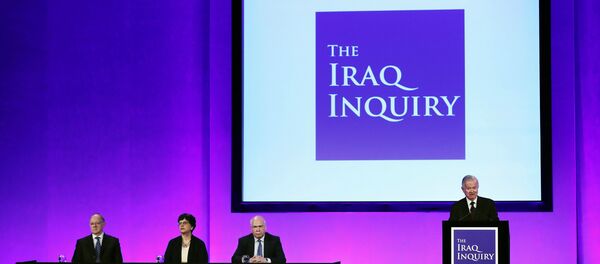MOSCOW (Sputnik) — On Wednesday, the UK government released a long-awaited report by Sir John Chilcot devoted to the United Kingdom's role in the 2003 Iraq War. The inquiry came to the conclusion that the UK government under the leadership of then-Prime Minister Tony Blair made a mistake by invading Iraq. According to the report, the decision to join the war was taken on the basis of flawed intelligence data and assessments.
PR Exercise
The report, which came out 13 years after the invasion, might have been kept in suspense by the UK government on purpose, Aidan Hehir, a legal expert from the Department of Politics and International Relations in University of Westminster, believes.
"The Report is in some respects a PR exercise; the British government felt in 2009 that it had to be seen to do something about the invasion so established the inquiry, but at the same time consciously restricted its potential impact," Hehir told Sputnik.
"While its clearly in the public's interest that this report has been published, it hasn't really unearthed anything very new and crucially it does not meet the demands of those in the UK and across the world for justice," Hehir said.
Belated Recognition
Recognition of the fallacious decision-making came at a time when other controversial UK decisions on conflict engagement have already been made, such as involvement in the Syrian conflict, Annie Machon, a former intelligence officer for the UK security service Mi5, believes.
"It’s a shame that the report did not come out sooner. If it came out after a year or two [after it was launched], it would be a very good stir of why the UK should not have invaded and should not have tried to interfere into Syria as well. The whole region would not have been so destabilized," Machon told Sputnik.
The report blames Blair’s administration for lack of planning for reconstruction after the invasion, and says that the prime minister was warned that military action in Iraq would increase the al-Qaeda threat to Britain.
Nevertheless, the inquiry may serve as a lesson for the next prime minister. The country is expected to have a new leader in October.
The former Mi5 officer added that she expected rather "some sort of a whitewash" from the inquiry, and was "surprised how draconian the verdict was from effectively a British establishment insider."
The Chilcot report also resonated well with the British public despite the recent shock over the results of the EU membership referendum. It was not "overshadowed" by Brexit, Machon said.
Blair Likely to Evade Justice
As the inquiry has a rather symbolic meaning today and mainly puts the blame on the intelligence, Tony Blair is unlikely to face trial, experts believe.
"Ultimately, Blair has suffered irreparable harm to his already tarnished reputation but he is likely to evade justice," Hehir said.
The United Kingdom was part of a US-led coalition, which also included Australia and Poland, that invaded Iraq in 2003, without a UN mandate, after accusing then Iraqi leader Saddam Hussein of possessing weapons of mass destruction, which were never found.




